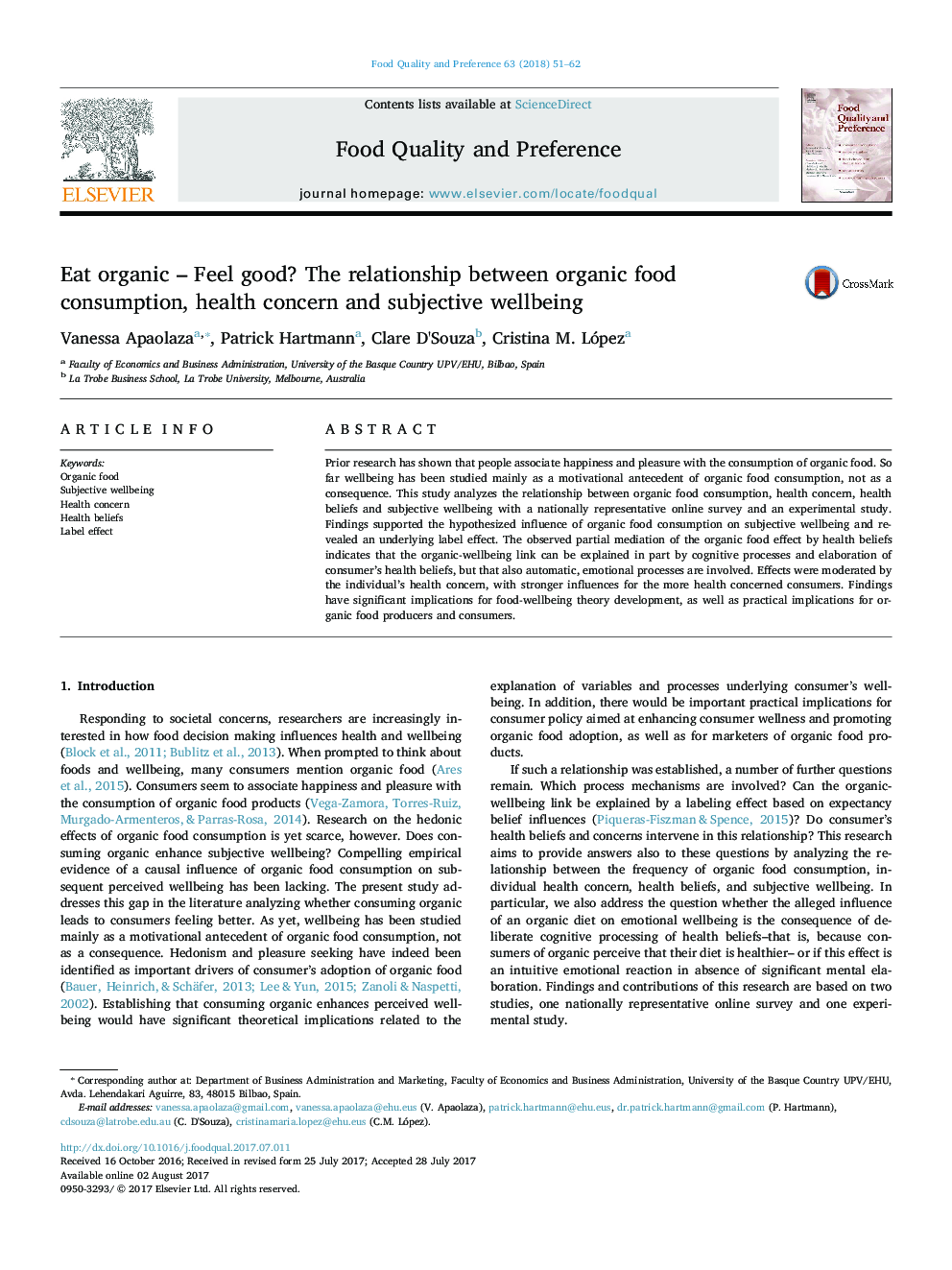| Article ID | Journal | Published Year | Pages | File Type |
|---|---|---|---|---|
| 5735934 | Food Quality and Preference | 2018 | 12 Pages |
â¢Findings based on a nationally representative online survey and an experimental study.â¢Results support the influence of organic food consumption on subjective wellbeing.â¢The organic-wellbeing link can be the consequence of a label effect.â¢Both cognitive elaboration of health beliefs and emotional processes are involved.â¢Effects are moderated by the individual's health concern.
Prior research has shown that people associate happiness and pleasure with the consumption of organic food. So far wellbeing has been studied mainly as a motivational antecedent of organic food consumption, not as a consequence. This study analyzes the relationship between organic food consumption, health concern, health beliefs and subjective wellbeing with a nationally representative online survey and an experimental study. Findings supported the hypothesized influence of organic food consumption on subjective wellbeing and revealed an underlying label effect. The observed partial mediation of the organic food effect by health beliefs indicates that the organic-wellbeing link can be explained in part by cognitive processes and elaboration of consumer's health beliefs, but that also automatic, emotional processes are involved. Effects were moderated by the individual's health concern, with stronger influences for the more health concerned consumers. Findings have significant implications for food-wellbeing theory development, as well as practical implications for organic food producers and consumers.
